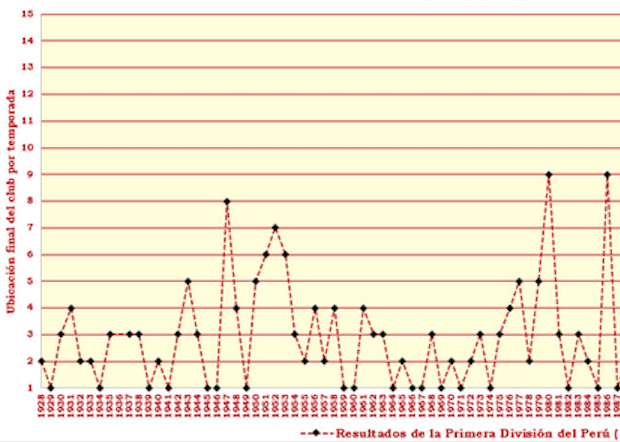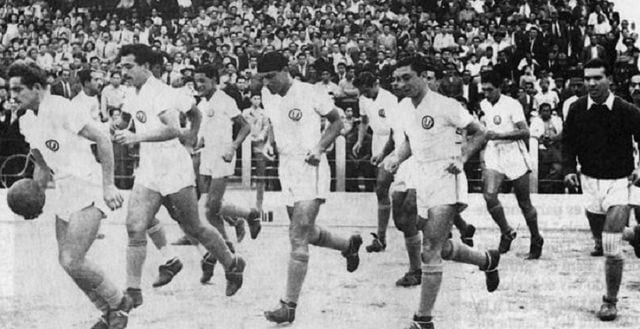[ad_1]
By Laurent Bellaiche
Dr. José Pierrend graduated from medical faculty in his dwelling nation Peru; he then moved to the US for his postgraduate coaching. He at present practices as an Internist in Arizona, the place that has been dwelling now for nearly 20 years. A soccer fan since his early childhood in addition to an avid collector of soccer-related books and magazines; he continues to assist his beginning place staff, Universitario de Deportes.
Are you able to clarify what Rec.Sport.Soccer Statistics Basis (RSSSF) is and what’s its mission?
Let me clarify first: R.S.S.S.F. stands for Rec.Sport.Soccer Statistics Basis. As outlined on its web site: “our main aim is amassing all form of statistics, specifically league tables from everywhere in the world, on soccer, and making this info obtainable to these sharing our curiosity. Furthermore, these statistics must be as dependable as potential, which implies that our final aim is to have correspondents from (and higher but in) the international locations concerned.”
What are the oldest soccer knowledge of RSSSF?
RSSSF began posting knowledge in 1994.
How did you turn out to be concerned with RSSSF, and what are your fields of experience with RSSSF?
I discovered RSSSF per happenstance whereas looking the web again in 1996 or 1997. Afterward I contacted Mr. Karel Stokkermans one of many co-founders, and in 1998 I began to ship knowledge. I’ve despatched knowledge about Peru’s soccer (leagues, golf equipment, nationwide staff), South American membership competitions, gamers awards (ie. Ballon d’Or), and a few nationwide groups caps and objectives.


A chart monitoring the efficiency of Universitario de Deportes in Peru’s Primer Division through the years noting last membership placement by season.
What are the soccer statistics that intrigued you probably the most?
My recollections is perhaps fading off, but when I keep in mind accurately what introduced me to RSSSF was researching within the web about nationwide groups’ prime scorers and most capped gamers.
Based mostly in your information of soccer and its statistics, who do you suppose ought to have gained the Golden Ball of the French journal, France Soccer, however didn’t?
Nice query. There have been a number of ones. First permit me a digression; I wish to point out that I imagine that since 2010 -when it briefly merged with the FIFA Award–the Ballon d’Or misplaced a part of its status, by involving different voters that than the unique panel of consultants/journalists. Additionally, it’s one way or the other troublesome to match the awards kind 1956 to 1994 and from 1995 onwards when it turned an open contest for any participant (initially enjoying in Europe after which in 2007 worldwide).
Going again to the questions: there are a number of ones I can suppose, however let’s deal with these the place a participant that by no means gained the award ought to have gained it (so it guidelines out 1964 after I suppose Luis Suarez (Spain) ought to have been the outright winner, however he had already gained in 1960).
1978 is an instance the place beneath the foundations of the day Robby Rensenbrink ought to have gained, although beneath as we speak’s guidelines Mario Kempes would have gained with out a contest. 1986 is debatable: I’m not sure that Igor Belanov was the excellent participant of that 12 months, definitely Maradona would have been the undisputed winner beneath as we speak’s guidelines, however again within the day maybe Alexander Zavarov was the Dynamo Kiev participant that deserved the award, not ruling-out both Gary Lineker or Emilio Butragueno whom maybe have been extra constant all through the entire 12 months.
However my reply is undoubtedly 1960: Ferenc Puskás ought to have gained it for his season and maybe additionally as a profession homage. It’s troublesome to clarify why Luis Suarez gained and by such a margin (54 vs 37 factors, which was a giant distinction in these days). I keep in mind an e mail trade with Prof. Bellaiche a number of years in the past, and his speculation that I agree with, is that maybe geopolitics have been concerned: Japanese European jurors didn’t favor Puskás who had left Hungary after the 1956 incidents.
[ad_2]



